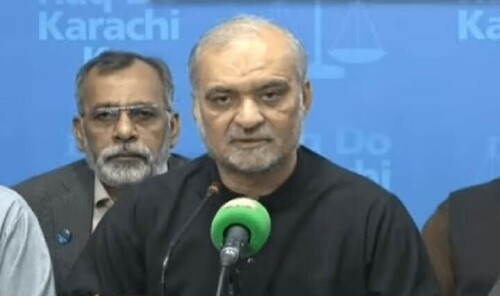KARACHI: Since the Sindh Press, Newspapers, News Agencies and Books Registration Act, 2017, has overlooked the interests of the organisations it claims to cater for in the print industry, it will only lead to further restricting the space for freedom of expression.
A discussion forum at the Institute of Business Administration reached the consensus after an intensive session on the impact of the new law on Thursday. The session was attended by journalists, researchers and citizens concerned. However, it was the lack of government representation that spoke volumes about the thought put in by legislators while working on important laws.
Although the law aims to scrutinise any propaganda material printed by terrorist or militant organisations, representatives of the media expressed fears that the noose would instead fall around the necks of legitimate news agencies.
Journalist Mazhar Abbas felt that the publications “this act aims to restrict do not even acknowledge the law. Most of them are printed by outlawed organizations, but are still functioning with impunity”.
He questioned the necessity of the act since the existing laws already prohibit “radical publications” from being printed, but they are not implemented. “These restrictions will instead inhibit those circles that are countering this radicalised thought.”
Many of the clauses in the act were debated at the session.
One element of the act that came in for sharp criticism was the scrutiny of newly published books. According to the act, “printed copies of the whole of every book which shall be printed in [the] Province after the commencement of this Act, together with all maps, prints or other engraving …. be delivered by the printer to the office of Director Press, or to such officers and at such place, as the Government may. ...”
This clause is, participants claimed, a violation of freedom of expression and will deter those interested in research and other areas of study from writing and printing books.
Fauzia Shaheen, founder president of the Women Media Centre and editor of a monthly magazine Dastak, said the law aimed to target the print media at a time when it is struggling for survival in a highly digitised world.
“This is almost a rehash of the 2002 ordinance, but the many additions to this act are mostly just restrictions,” she explained.
“The most sensible medium at the moment is the print medium and unfortunately the restrictions put on it will discourage genuine people from writing and working. Thus this document needs to be completely revised.”
Published in Dawn, October 6th, 2017













































Dear visitor, the comments section is undergoing an overhaul and will return soon.